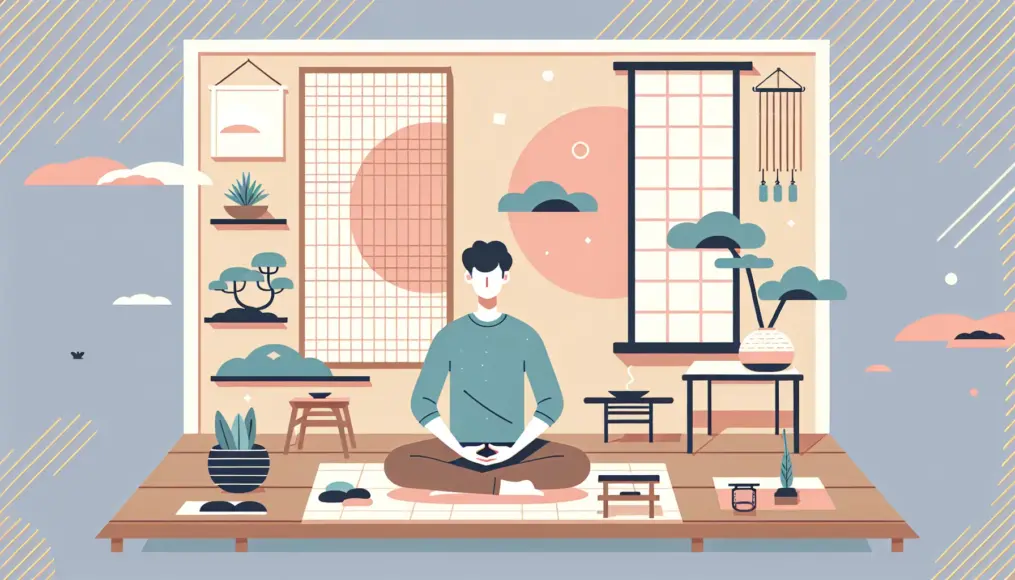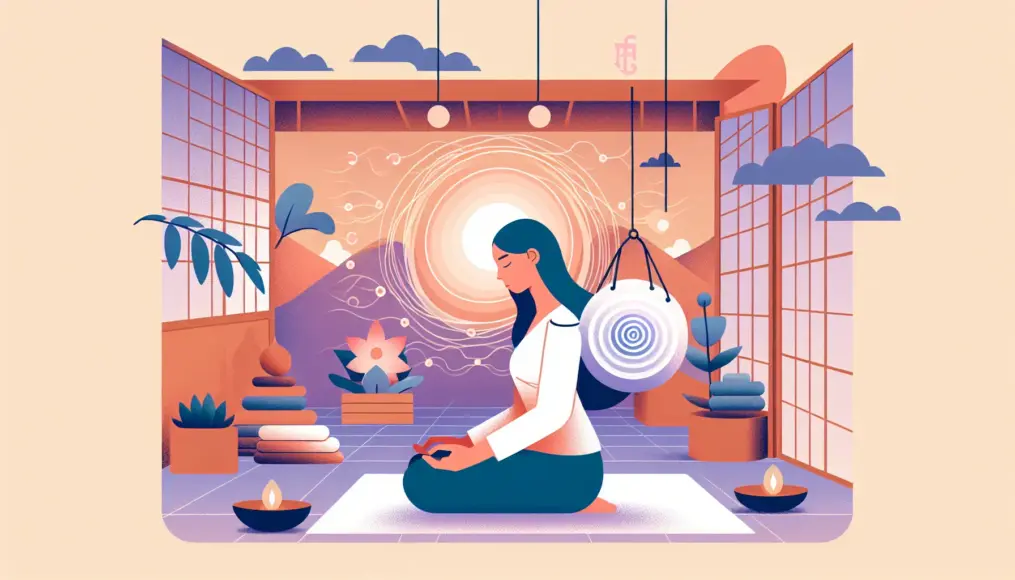Meditation is an essential practice for calming the mind. Recently, its benefits in reducing stress and enhancing focus have gained significant attention. In our fast-paced lives, taking just a few moments to meditate can provide us with a valuable opportunity to reflect on ourselves.
In this article, we will delve into the basics of meditation, explore its effects, and share easy practices for beginners to get started. Whether you’re looking to find inner peace or aiming for personal growth, this content is perfect for you. So, why not step into the world of meditation?
- Learn about the definition and history of meditation
- Discover its mental and physical benefits
- Get tips on beginner-friendly practices and how to make it a habit
What is Meditation?
Meditation is a practice that helps quiet the mind and connect with one’s inner self. Recently, many people have started incorporating it into their lives as a way to relieve stress and promote relaxation. Not only does meditation offer a path to mental tranquility, but it is also said to boost concentration and creativity. In this section, we’ll take a closer look at the definition of meditation and its historical background.
Defining Meditation
Meditation refers to the mental practice of focusing the mind or relaxing it. Typically, this involves sitting in a quiet environment and directing attention to one’s breath or observing one’s thoughts to achieve a sense of calm. Through this process, individuals can turn their gaze inward and find balance within.
Meditation is more than just a relaxation technique; it is an essential tool for personal growth and mental stability. With various styles and approaches available, people can practice meditation in ways that fit their unique goals and lifestyles.
- Meditation is a practice for focusing or relaxing the mind
- It is often performed in a quiet environment
- It serves as an important means for personal growth and mental stability
History and Background
The origins of meditation stretch back to ancient times, deeply rooted in cultures like those of India and China. In ancient religions and philosophies, calming the mind was seen as a pathway to spiritual growth and enlightenment. For instance, in Buddhism and Hinduism, meditation has played a vital role in daily life and has been practiced as part of spiritual training.
As time progressed, meditation transcended its religious boundaries and became widely accepted in modern society. Scientific research has validated its benefits, leading many to adopt it as a means of pursuing health and happiness. Thus, meditation, with its long history, continues to be recognized as a valuable practice in contemporary times.
For those looking to embark on their meditation journey in search of inner peace, there’s an article that can provide deeper insights. Check out “The Power of Music in Meditation: Choosing Healing Sounds,” which discusses how to select music that enhances your meditation experience and its benefits. By harnessing the power of music, you can enrich your personal meditation practice even further.
- The origins of meditation lie in ancient India and China
- It was highly valued in ancient religions and philosophies
- It is widely accepted today as a means to pursue health and happiness
The Benefits of Meditation
Meditation is not just a pathway to inner peace; it offers a variety of benefits that have been supported by numerous studies. Research has revealed the significant effects meditation can have on both our mental and physical well-being. In this section, we’ll explore the mental and physical benefits that come from practicing meditation.
Mental Benefits
Meditation is widely recognized for its ability to reduce stress and anxiety. By calming the mind, it allows us to organize our thoughts and make more rational decisions. Additionally, meditation enhances self-awareness, making it easier to manage our emotions. This improvement can lead to better coping strategies for dealing with everyday stressors.
Moreover, meditation can also boost concentration and creativity. By clearing the mind, it becomes easier to generate new ideas and solutions, positively impacting both work and learning experiences.
- Meditation reduces stress and anxiety
- Increases self-awareness and emotional regulation
- Enhances concentration and creativity
Physical Benefits
Meditation also has numerous positive effects on the body. Firstly, its relaxation benefits can lead to a decrease in heart rate and blood pressure, relieving tension throughout the body. This, in turn, can enhance overall health and contribute to disease prevention.
Additionally, meditation has been shown to strengthen the immune system. By calming the mind, it helps lower the secretion of stress hormones, promoting balance within the body. Regularly incorporating meditation into your routine can tap into your body’s natural healing abilities, supporting your overall health.
- Meditation lowers heart rate and blood pressure
- Relieves tension, improving mental and physical health
- Boosts immunity and enhances natural healing abilities
A Beginner’s Guide to Meditation Practice
Meditation is an accessible practice that anyone can start, regardless of experience. You don’t need any special tools or a specific environment; just a little time is enough to begin. In this section, we’ll explore some practical methods to kick off your meditation journey and tips on how to weave it into your daily life.
Simple Ways to Get Started
To begin meditating, the first step is to find a quiet space. Create a relaxing environment where you can either sit or lie down comfortably. Once you’re settled, close your eyes and take a few deep breaths, focusing your awareness on your breath. If thoughts start to pop up, simply acknowledge them and gently guide your focus back to your breathing.
For beginners, starting with short sessions of about 5 to 10 minutes is a great way to ease into the practice. As you become more comfortable, you can gradually extend the duration for a deeper meditation experience.
- Find a quiet place
- Practice deep breathing in a relaxed posture
- Start with just 5 to 10 minutes
Integrating Meditation into Daily Life
To make meditation a part of your daily routine, consistency is key. By practicing at the same time each day, you’ll naturally carve out time for meditation. Consider using the moments right after you wake up or just before you go to bed for your practice.
Additionally, meditating while walking can also be very effective. By focusing on the act of walking and tuning into the sounds and sights around you, you can refresh your mind. Incorporating meditation into your everyday life helps cultivate a habit of maintaining mental peace.
- Establish a daily routine at the same time
- Utilize morning or bedtime for practice
- Meditate while taking a walk
Tips for Keeping Up with Your Meditation Practice
Maintaining a consistent meditation practice is crucial for keeping your mind at peace. However, it can be challenging to integrate this habit into a busy lifestyle. In this section, we’ll explore some effective strategies for making meditation a regular part of your routine, common pitfalls you might encounter, and how to overcome them.
How to Make Meditation a Habit
To ensure you stick with meditation, it’s essential to incorporate it into your daily routine. By practicing at the same time each day, meditation becomes an integral part of your life. Consider setting aside specific times, like right after you wake up or just before bed.
Starting with shorter sessions can also be very effective. Begin with just five minutes of meditation and gradually increase the duration over time. This way, you can ease into the practice without feeling overwhelmed. Plus, meditating with friends or family can create a supportive environment, helping you all stay motivated.
- Meditate at the same time every day
- Start with short sessions
- Practice with friends or family
Common Pitfalls and How to Overcome Them
If you’re just starting with meditation, you might face a few challenges along the way. For instance, you might struggle to keep up with your practice or find it hard to concentrate. To address these issues, it’s important to honor your own pace. Avoid pushing yourself to meditate for long periods; instead, focus on what feels right for you.
If you find your mind wandering, don’t fight those thoughts. Instead, adopt a mindset of acceptance. By observing your thoughts without judgment, you may gradually find it easier to calm your mind. It might feel difficult at first, but with consistent practice, you’ll start to become more comfortable with it.
For those interested in more ways to maintain your meditation practice, there’s a particularly helpful article available. Check out Start Your Day Right: A 5-Minute Morning Meditation Routine, which offers practical steps and benefits of a quick meditation routine that fits easily into a busy morning. Take a look to kickstart your day in a positive way!
- Honor your own pace
- Don’t force long sessions
- Maintain an observational mindset towards your thoughts
Conclusion
Meditation is an effective way to calm the mind and promote personal growth. In this article, we’ve explored the fundamental definition of meditation, its benefits, and practical techniques that even beginners can easily incorporate into their routines. The appeal of meditation lies not only in its ability to reduce stress and enhance focus but also in how effortlessly it can be integrated into daily life.
We’ve also highlighted key points for maintaining a consistent meditation practice, including tips for forming a habit and common pitfalls along with their solutions. With this knowledge, we encourage you to discover a meditation style that suits you and achieve a sense of inner peace.
- Meditation brings peace of mind
- It can help reduce stress and improve concentration
- Establishing a routine is crucial for consistency
Consider adding meditation to your self-care routine to prioritize your mental well-being. We’d love to hear about your experiences and thoughts in the comments!



Comment